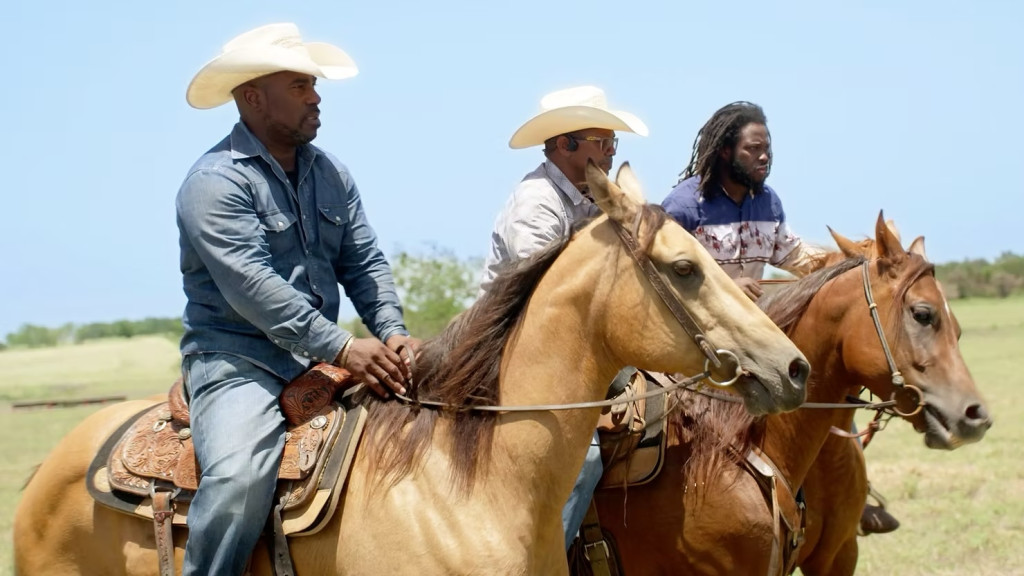Every now and then, a documentary arrives that doesn’t just inform, it reframes everything you thought you knew. High Horse is one of those films.
More than a historical deep dive, it’s a cinematic correction, one that confronts the mythmaking machine that shaped America’s understanding of the cowboy, and intentionally erased the Black men and women who defined the culture.
The film, produced by Jordan Peele, wastes no time setting the tone. “If there were no Black cowboys, then America would not exist,” are the words that you hear when the documentary begins.
It’s not hyperbole; it’s historical fact. Yet for generations, that truth has been buried beneath Hollywood tropes, whitewashed Westerns, and a national narrative that pushed Black contributions to the margins.
High Horse pulls back the curtain on how Black cowboys and cowgirls were systematically removed from American history. Not because they didn’t exist, but because they powerfully did.
The documentary breaks this down with clarity, beginning with the reality that one in four cowboys were Black, even though Black Americans made up a much smaller share of the population in the late 19th century. Historian Bruce Glasrud’s research confirms that Black presence in the West was not an anomaly.
It also unpacks the origins of the word cowboy itself. The term was originally used to demean Black cowhands, while white men doing the same work were referred to as cowmen or cowhands. Over time, Hollywood flipped the term into a badge of rugged white masculinity, erasing its linguistic history and the people it was used against.
One of the film’s most striking revelations is the truth behind one of America’s most iconic characters. Bass Reeves, a formerly enslaved man who became one of the greatest lawmen of the West, is shown to be the real inspiration for the Lone Ranger, a fact Hollywood never acknowledged, choosing instead to build the legend around a fictional white hero.
The documentary also reminds viewers that the earliest moving pictures documenting cowboy life only existed because of the labor, skill, and horsemanship of Black riders. Their expertise helped shape the visual foundation of Western culture long before it was rewritten on studio backlots.
Ultimately, High Horse makes clear that Hollywood’s Westerns played a central role in rewriting history, deliberately whitewashing the frontier and positioning white men as the sole embodiment of American grit.
In doing so, an entire legacy of Black excellence, skill, and influence was pushed out of the frame, sometimes literally.
The documentary argues that these omissions weren’t accidents. They were part of a deliberate, cultural project rooted in white supremacy, designed to control who gets credit for shaping America.
What makes High Horse a must-see is not just the history it reveals, but the way it restores dignity to a culture buried under dust and distortion.
Viewers meet real Black cowboys and cowgirls, descendants of those who kept the culture alive despite the erasure. Their stories show that Black presence in the West wasn’t a rarity; it was the norm. They trained horses, drove cattle, enforced the law, and built communities, often with skills unmatched by their white counterparts.
The film also highlights how modern Black riders are reclaiming space from rodeos to ranches to urban horseback clubs, preserving traditions that were nearly stolen outright.
In a time when America is reexamining its history and confronting decades of revisionism, High Horse arrives as both a correction and a celebration. It challenges viewers to recognize that America’s stories have always been bigger and Blacker than they were told.
More importantly, it pushes back against the narratives that reduce Black identity to trauma.




